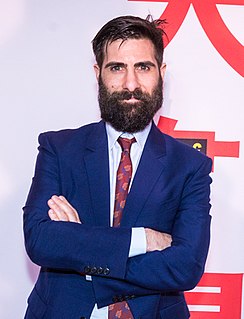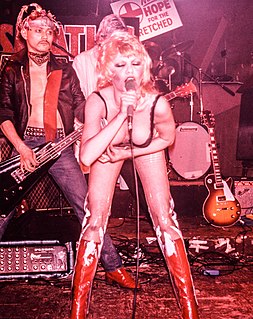A Quote by Eric Gill
Culture is a sham if it is only a sort of Gothic front put on an iron building -- like Tower Bridge -- or a classical front put on a steel frame -- like the Daily Telegraph building in Fleet Street. Culture, if it is to be a real thing and a holy thing, must be the product of what we actually do for a living -- not something added, like sugar on a pill.
Related Quotes
The simple model of a bridge is great, and you could not build a bridge without understanding it well. But if you're actually building the bridge, you need to know the site. A lot of economics is like that: When prices go up, demand is gonna go down. You can't forget that and run your economy. But it's not the only thing you need to know.
Statistically, Portland, Oregon has the most street kids, like kids that run away from home and live on the street. Its like a whole culture thing there. If you walk around on the streets, there are kids living on the streets, begging for money, but its almost like a cool thing. They all just sit around and play music and squat.
If you look at Gothic detailing right down to the bottom of a column or the capital of a column, it's a small version of the whole building; that's why, like dating the backbones of a dinosaur, a good historian can look at a detail of a Gothic building and tell you exactly what the rest of the building was, and infer the whole from the parts.
The most important thing is practice in daily life; then you can
know gradually the true value of religion. Doctrine is not meant for
mere knowledge, but for the improvement of our minds. In order to do
that, it must be part of our life. If you put religious doctrine in
a building and when you leave the building depart from the practices,
you cannot gain its value.






































